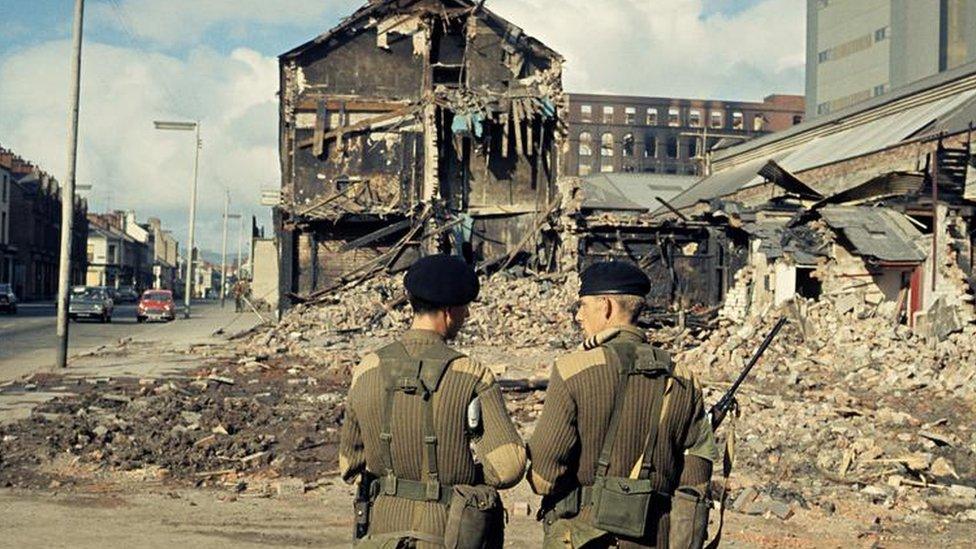Troubles: Sean Brown inquest delays criticised by coroner
- Published

Sean Brown was abducted from the grounds of Bellaghy Wolfe Tones GAC in 1997
A coroner overseeing an inquest into the murder of a man by loyalists in 1997 has criticised delays and said proceedings should be concluded by early next year.
Sean Brown, 61, was abducted and shot by the Loyalist Volunteer Force (LVF) as he locked the gates of a GAA club in Bellaghy, County Londonderry.
No-one has ever been convicted of his murder.
Mr Brown's family fear they may not get answers because of the delays.
The inquest began in March, but a hearing that was planned for 12 June did not go ahead as scheduled as sensitive material from the security services had still not been disclosed.
Under amendments to the government's controversial Northern Ireland Troubles Legacy Bill, conflict-related inquests must be concluded by 1 May 2024.
Any ongoing inquest that has not reached a verdict or findings would be closed.
His family said they feared the new cut-off date meant they would never see it reach a conclusion.
Mr Brown's family received an undisclosed financial settlement and an apology from the Police Service of Northern Ireland (PSNI) in May 2022 over inadequacies in the original RUC investigation into the death.
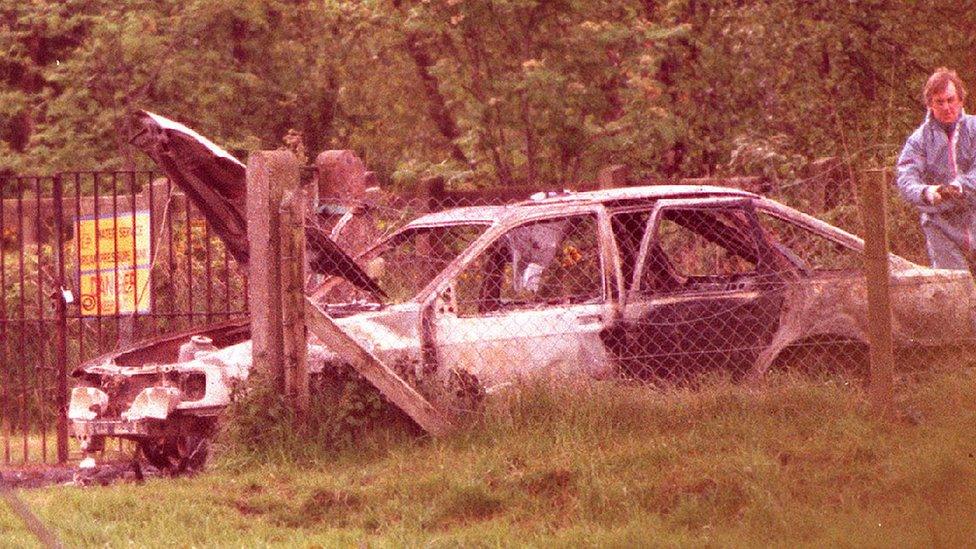
Sean Brown's body was found in a burnt-out car near Randalstown
At a hearing on Tuesday, a coroner criticised the delays and said the inquest would resume on 8 January 2024. It is expected to last four weeks.
He ordered that all remaining issues around the sensitive material be dealt with before that date.
A lawyer for the PSNI said some of its material could be subject to a Public Interest Immunity application and the timeline set out for that to happen could not be met.
But the coroner described that process as "opaque" and insisted it could not dictate the timeline he had laid out.
He said it was time to move the inquest forward and provide closure to the Brown family.
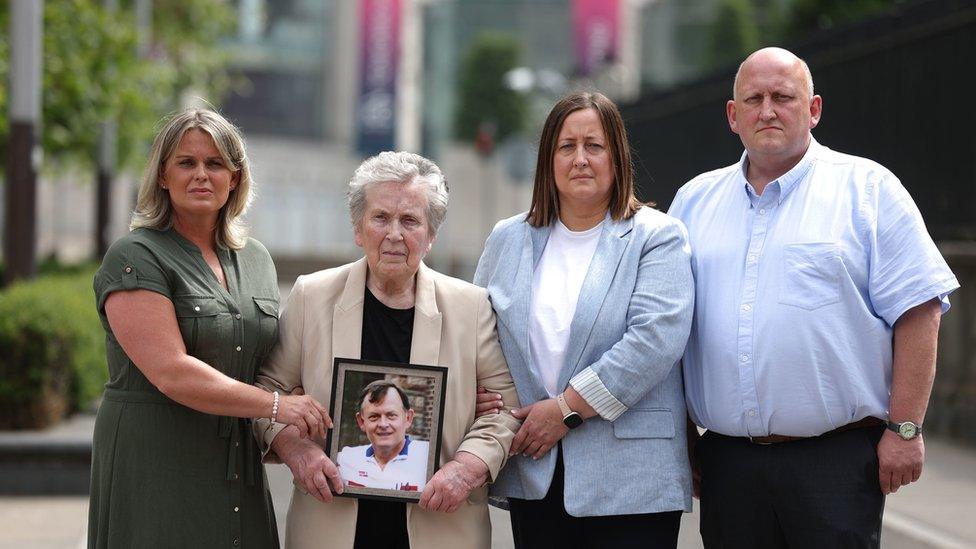
The family of Sean Brown have appealed directly to Chief Constable Simon Byrne
Mr Brown's relatives made a direct appeal to the PSNI's Chief Constable Simon Byrne to produce the information required for the inquest to resume.
Speaking after the hearing, his daughter Siobhan said: "I would respectfully ask that he, on behalf of the family, produce that information to enable my father's inquest to proceed as is scheduled."
She added that the family remained "slightly apprehensive" as they awaited the PSNI response to the coroner's ruling.
In response to the coroner's decision, PSNI Det Ch Supt Ian Saunders said: "We are supporting the Coroner's Service during this inquest and we will continue to do so.
"As this is the subject of ongoing inquest proceedings, it would be inappropriate for the police service to comment further at this time."
In a statement earlier before the coroner's ruling, the Ministry of Defence said it was "fully committed to assisting the inquest process".
"There are ongoing legal proceedings relating to this incident and as such it would be inappropriate to comment further at this time."
What is the Troubles Legacy Bill?
The UK government published a series of amendments to its controversial bill earlier in June, ahead of its likely passage at Westminster.
The bill is opposed by all the main Northern Ireland political parties, as well as groups representing bereaved families and victims of the Troubles.
A key issue is that those who co-operate with a new information retrieval body - the Independent Commission for Reconciliation and Information Recovery (ICRIR) - can be granted immunity from prosecution.
The government has said the amendments will "address a number of key concerns".
Earlier, Siobhan Brown called on the government to pause the legacy legislation and said further consultation with victims' families was needed.
"This does have such a big impact on so many families and I think that is something that needs seriously considered," she told BBC Radio Foyle's North West Today.
In a statement, the Northern Ireland Office (NIO) said that the "timetabling of inquests in Northern Ireland is a matter for coroners".
"The government expects Troubles-related cases that do not conclude via the coronial process by 1 May 2024 to be transferred to the fully operational Independent Commission for Reconciliation and Information Recovery (ICRIR), using provisions already contained within the bill.
It added, that the ICRIR will have the "necessary powers to conduct criminal investigations as part of any review", will be "supported by legislative requirement" and "will have the power to make findings" in a manner similar to an inquest.
Related topics
- Published8 June 2023
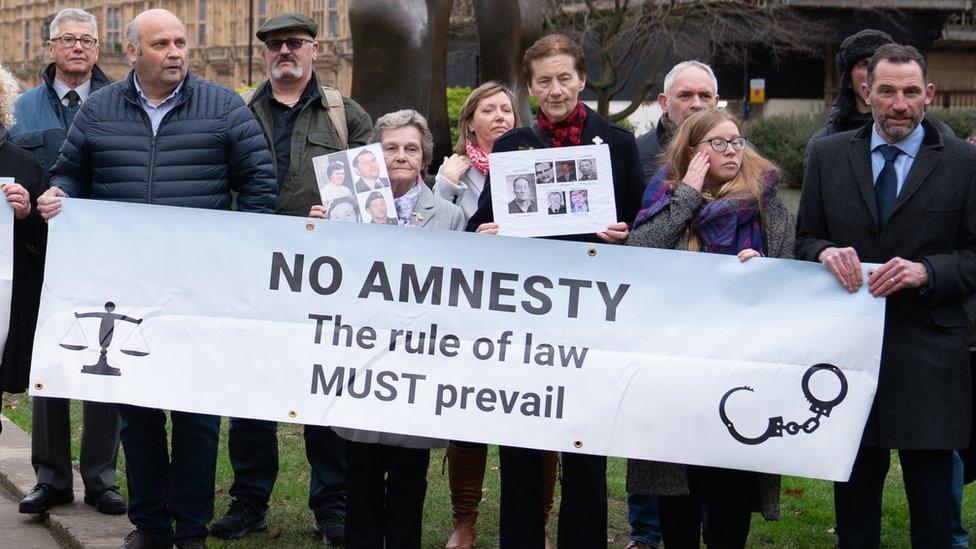
- Published14 May 2023
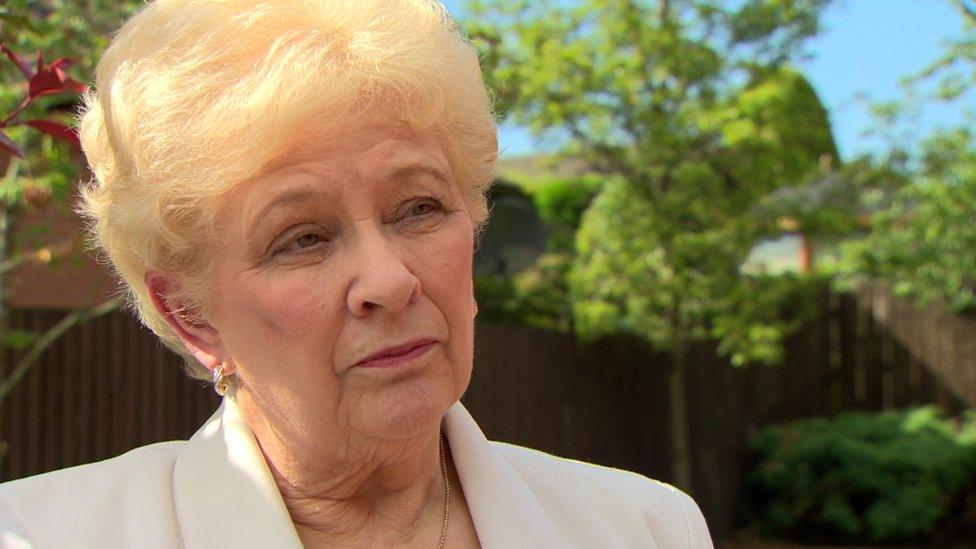
- Published31 January 2023
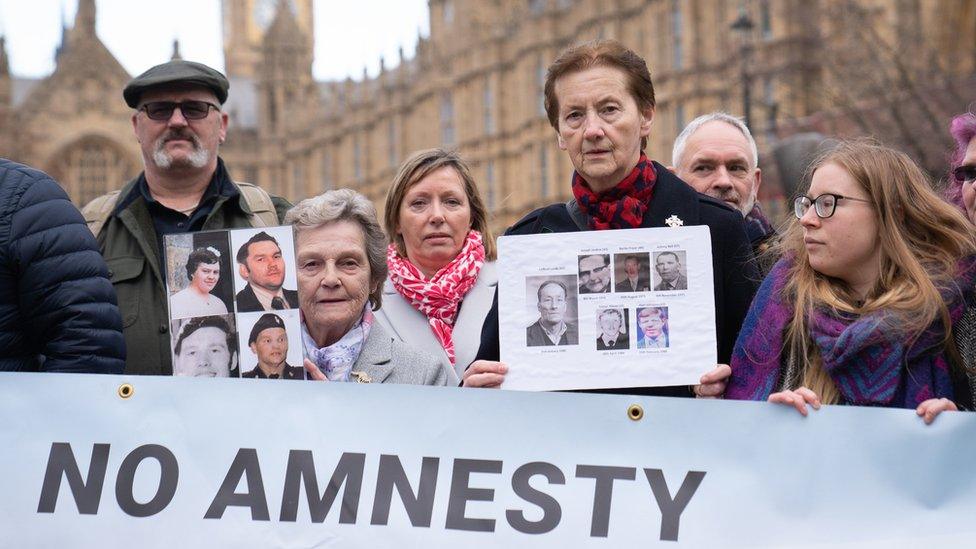
- Published3 January 2023
